The time has come for a pivotal moment in every child’s life: choosing schools. If you’re a parent of an ADHD child, which schools will be most conducive to your child’s needs? Are there alternative pathways to mainstream education? What are AEDs and how are they different from school counsellors? Unlocking ADHD writer Megan Tan recaps the Parent-2-Parent webinar, “Choosing the Right School for your ADHD Child” on 14 November, 2021. The video recording can be found on YouTube and the slides can be found on our Facebook page.
The panelists were either parents whose children were at different stages of their educational lives, or parents who had chosen an alternative route to mainstream education, as well as an Allied Educator (AED). They guided the audience through each stage of schooling and gave tips on working with AEDs.
Pre-Primary and Primary School
Moonlake Lee, who was moderating, kicked off the panel by introducing Kalsum Harum. Kalsum is the editor of homeschoolsingapore.sg and homeschools her three children. She opened with a section on schooling choices, and how primary schools might categorise children with Special Education Needs (SEN).
Additionally, she stressed that even if one has a child with severe ADHD, the child may still be placed in the mild SEN group. She also added that it is important to consider all the options before deciding between homeschooling or mainstream education. For example, children in mainstream education are able to take foundation level subjects for PSLE, which is not possible with homeschooling.
Wong Yi Hui, a stay-at-home-mom who has an ADHD child, shared some tips on preparing for primary school. She said that there were “a lot of red flags” for her child in preschool, prompting her to find government based intervention. This allowed the child to work directly with learning support in his kindergarten years. After the intervention program, Yi Hui and her son also worked with a psychiatrist at KKH for additional support. However, since her son was already seeing a psychiatrist, he was unable to access REACH support in primary school, which Yi Hui said is important to bear in mind.
She also spoke about delaying primary school, which can be done through permission with the Ministry of Education. The delay can last up to two years if required. She also sent her child to psychologist-run primary one preparatory classes so that her child was well-equipped for the transition.
“I think one of the most important thoughts I had as a parent when I was deciding which school to send my child to, was I need to stop thinking about what were typically good decisions for parents, and really look at my child,” she said.
Emphasis should be placed on what the child will need to thrive. For her, distance was a factor in choosing a primary school for her son. She noticed that self-regulation was tiring for him, so she chose a school that was closer to home, allowing her son to reach home earlier and rest. She also felt that girls would model good behaviour for her son, which led her to choosing a co-ed school for him.
Additionally, Yi Hui chose a school that was less academically rigorous. She believed this would allow her child to build his social and emotional skills better, and help him to foster relationships within the classroom. It was also important to her to speak to the AEDs in the school to find out if the school would provide adequate support.
Michelle Ho, who is an Allied Educator (AED) in a primary school, elaborated on what AEDs do. She said that AEDs work with children who have learning and behavioural needs, while counsellors are focused on emotional or social difficulties. Often, AEDs and counsellors work in a team as these needs can overlap. AEDs work with ADHD children in class or in small group withdrawal sessions to address the different needs that may arise.
AEDs may also work closely with parents and teachers. Michelle recommends that parents first contact teachers to access an AED. Depending on the child’s needs, they may receive different levels of support.
Secondary School
Tahirah Mohamed, who is a stay-at-home mom to nine kids, seven of which have SEN, shared her tips on choosing a secondary school.
After her daughter had shortlisted eight schools, Tahirah called up each one to interview the AEDs. Based on the interview, she could also monitor the tone or non-verbal communication from the AED. It helped her to decide which school had AEDs that provided adequate support.
“We need to listen to [our children’s] perspective,” she said. “This is the first step of slowly letting go, because our children are approaching the teen age,” she added. After speaking with her daughter, they were able to shortlist six schools they felt suited her.
To prepare for secondary school, she taught her children to take initiative in their learning. She also taught them time management skills. She made sure they all had adequate sleep and nutrition, as she believes staying healthy will help them cope better. Additionally, she also sat down with her children to discuss appropriate Co-Curricular Activities together. She emphasised the importance of leaving the final decision up to the child.
Tahirah also encouraged parents to go through worst case scenarios, such as getting lost on public transport, with their children, so they know what to do if such a situation arises. She added that it was important to maintain open communication with children and to set clear boundaries.
On posting day, she urged parents to accompany their children, as the transition from primary to secondary school can be scary for a new student. “Your presence will help them feel safe and grounded,” she said.
To facilitate communication with teachers and AEDs, she prints information sheets to help them understand her children’s needs. She also provides an “action plan” so that her children’s teachers and AEDs know how best to support them.
Alternative pathways and beyond
Kalsum also presented an alternative to mainstream education in homeschooling. She suggested that children who may have difficulty in mainstream classrooms, may fare better in a homeschooling approach. Homeschooling affords more flexibility in planning lessons and activities.
“For struggling learners, when they’re given control over the learning, it helps to reduce anxiety. More importantly, it opens the door to communication,” she said. It also allows children to develop their executive functioning skills at their own pace.
However, homeschooling also comes with its disadvantages. Parents may be incompatible with their children as teachers, or lack the finances to cover a homeschooling curriculum. In the case of ADHD children, ADHD can also run in families. Parents might face similar executive function struggles in homeschooling, which can make it difficult for the family to cope. Thus, it is important to consider all sides before deciding to homeschool one’s children.
Post-PSLE, Kalsum also shared some pathways for homeschoolers.
Besides the GCE O or N Levels,there are international systems students can choose from to enter tertiary education. The homeschooling community also provides support, so most parents are not alone in homeschooling their child.
Kalsum recommends the IGCSE (International General Certification of Secondary Education), which she describes as “flexible with a capital f”. The IGCSE provides more subjects than mainstream education, which may be helpful to ADHD children who have different interests. Children can also structure their exam settings to their needs. However, the IGCSE can be costly, and affect tertiary education choices, especially in polytechnics, for children.
She also shared some non-academic pathways parents can consider.
“You need to observe if [your children] are more inclined to certain traits or entrepreneurial activities. Give them the space and resources to explore,” she said.
Moonlake, who has two children, one of which has ADHD, talked about Twice Exceptional children, which are gifted kids that face difficulty in the education system due to learning disabilities or conditions such as ADHD. Thus, it is also important to consider alternative methods such as the ones mentioned above, for these children.
The panel ended with a general Q&A with the audience. “This notion of studies can be academic or non-academic in nature. So if we peel back all these layers, we can better enjoy our relationships with our children,” Kalsum said in closing.
[For more personal stories about ADHDers, please click here. Unlocking ADHD also has an Executive Functioning Workshop for Parents of upper primary and lower secondary students called Empower! Check it out here!]





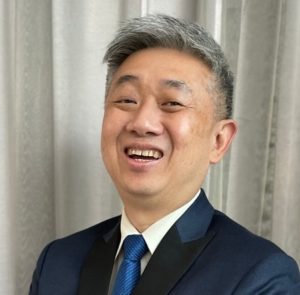
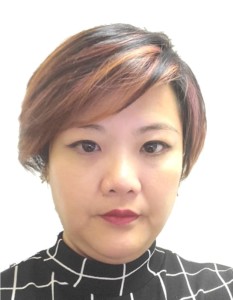

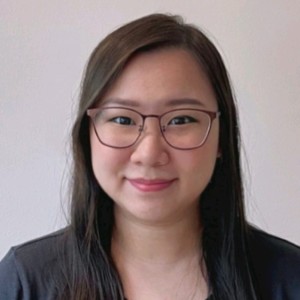










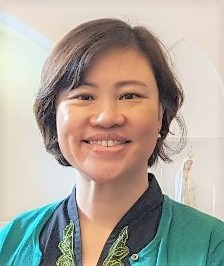
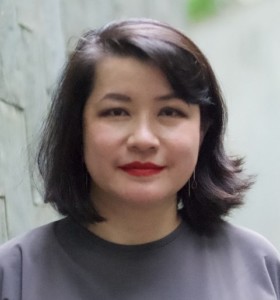














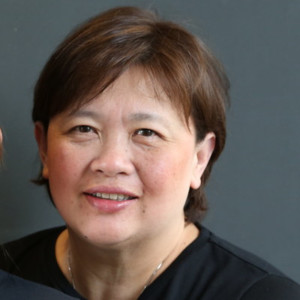
















Dear Unlocking ADHD,
I am a student from the National University of Singapore working on an individual school project on Social Isolation among Primary School Children with ADHD in Singapore. This topic resonates well with me as I have a sibling who was diagnosed with ADHD. To enrich my project, I did some further research and chanced upon your website wondering if there are relevant people who can answer some of the questions that I have.
– For school-going children, how do ADHD symptoms hinder social interactions with other children?
– From your experience, what is the most challenging aspect of helping individuals with ADHD overcome social isolation?
– What are the responsibilities of teachers/parents when managing a person with ADHD faced with the risk of social isolation?
– Are there any programmes to support ADHD children and integrate them into the classroom settings? What else could be done to improve support for these children regarding social isolation?
I am free to hop on a call if the person prefers to share with me their thoughts verbally. This will greatly help with the advancement of my project. Thank you!